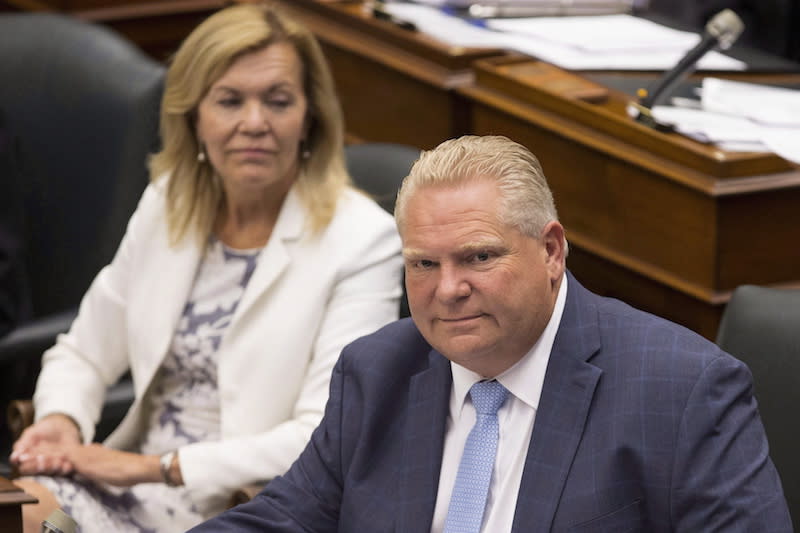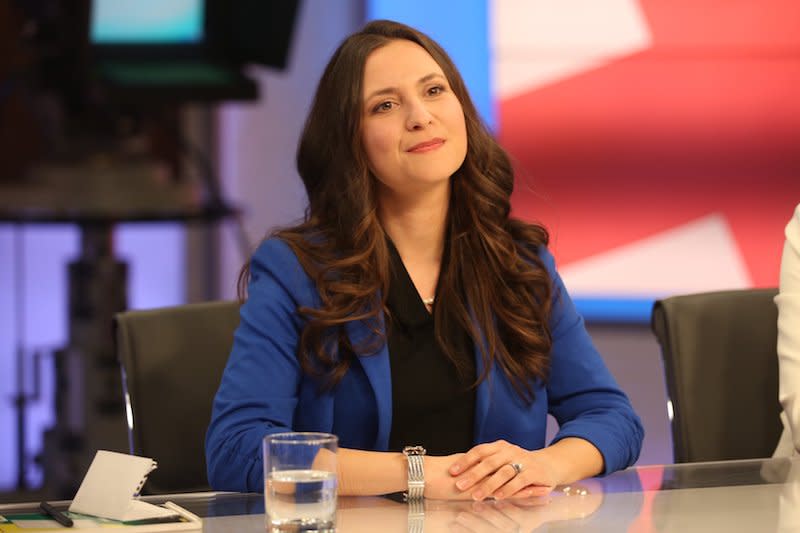Ontario classrooms become political battleground with sex-ed curriculum

When schoolchildren attend class in Ontario next month, something will be different.
Gone are the days of the modernized sexual-education curriculum, which was introduced to students by former premier Kathleen Wynne’s Liberals in 2015. Instead, Progressive Conservative Premier Doug Ford’s government announced last month Ontario will be reverting back to the 1998 sexual-education curriculum until a new one can be developed.
The 1998 curriculum doesn’t mention same-sex relationships or sexting, and it doesn’t teach consent in the same way. However, the move fulfils a PC campaign promise to eliminate the teachings that have become controversial among social conservatives.
It has also caused outrage from some in Ontario, including NDP Leader Andrea Horwath, who presented a petition signed by 1,800 health-care workers urging the new government to reconsider the move. The group of doctors, nurses and social workers say the decision will put children at risk.
“I fear that they’re catering to a small group that will have major effects, and potentially disastrous effects, for our students,” said Nathan Core, president of the Elementary Teachers’ Federation of Ontario (ETFO) Waterloo Region Occasional Teachers’ Local.
But former PC leadership candidate Tanya Granic Allen says the government exists to serve the people, including the thousands who protested the 2015 curriculum at Queen’s Park.
Advocate slams ‘unproven’ theory
While Granic Allen agrees the curriculum needed to be updated, she doesn’t agree with the way Wynne’s Liberals went about it. She argues the curriculum includes “radical and ideological” content that makes it “culturally insensitive.”
“Her intention was not to update the curriculum because of technology, it was merely to use this curriculum to force her social engineering in the classroom,” Granic Allen, the president of an advocacy group called Parents as First Educators (PAFE), told Yahoo Canada.
She points to gender identity, a theory she calls “unproven” and “unscientific,” as one aspect of the curriculum she takes exception with.
“Teaching gender fluidity to children who are eight years old is insane,” Granic Allen said. “It doesn’t need to be an institutionalized discussion.”
Under the 2015 curriculum, Grade 3 students (ages eight and nine) are introduced to gender identity and sexual orientation. But those in favour of the curriculum say the teachings help children recognize what a “normal family unit” means in 2018.
“When this original curriculum was developed in 1998, there was no legal gay marriage — that didn’t exist,” Core explained. “[Students] should see their schoolwork, their curriculum, reflected in the realities of 2018.”
But Granic Allen insists every child is different and some are ready for conversations that others may not be mature enough to handle.
“Children develop at different stages,” Granic Allen said. “If a child cannot absorb information, you’re confusing a child.”
Ultimately, the former PC candidate says she wants a curriculum that doesn’t “sexualize children.”
“Introducing sexual concepts to children that are way too young, it sometimes can even encourage behaviour,” Granic Allen said.

What about diversity, inclusion?
According to Core, the 2015 health curriculum is based on facts, not opinions, and it gives teachers the tools to properly educate children about serious issues they are facing in the world today.
“A lot of people are talking about vague terms but I believe it stems from, ultimately, homophobia, in addressing non-traditional family units,” Core said, adding children from these families deserve to be recognized.
“Schools are a place to learn. They have to respect diversity and inclusion. These conversations should not be happening in 2018. These are conversations that happened years ago. We’ve moved past that,” Core said.
Granic Allen says she’d like to see a curriculum that “teaches love, dignity and respect” while addressing modern issues such as internet pornography and online bullying.
While she admits it’s impossible to satisfy every parent, Granic Allen says parents are the “first educators” and their rights should be respected. That’s why she wants to see the government provide an opt-out for parents, even if only a small percentage of what’s being taught is controversial.
Ontario Education Minister Lisa Thompson’s office says updates or revisions to “any piece of curriculum” are required teachings for school boards and educators, despite any objections.
“When the ministry makes revisions to any piece of curriculum, updates are communicated to the school boards and materials are provided that are required to teach it,” Education Minister Lisa Thompson’s office told Yahoo Canada via email.
The ministry says it plans to hold a consultation process for a new sex-ed curriculum and welcomes “anyone who wishes to participate in the process.”
With files from The Canadian Press



